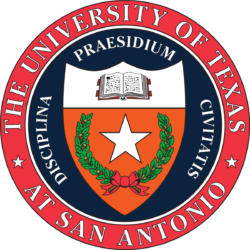Adapting Lesson Study to Support Tertiary STEM Student Success: Examining Faculty and Teaching Assistant Roles
Abstract
The University of Texas at San Antonio (UTSA), as an HSI aims to increase academic success for historically underrepresented students. Low passing rates for Hispanic and low-income students (57%) enrolled in gateway engineering courses emphasize a need for seeking innovative means of supporting student learning. Drawing on a 5 year longitudinal curriculum redesign project utilizing Lesson Study (LS) as a framework, this paper explores the efficacy of LS in improving student learning under two conditions. The main goal is this paper is to compare LS and its effect on student learning when involving only faculty in an introductory engineering course in comparison with LS involving faculty and teaching assistants (TAs).
The project employs an adapted LS cycle (Perry & Lewis, 2011), in which professional development teams, comprised of faculty and graduate assistants from the College of Education and College of Engineering, collaboratively identity issues, discuss, plan, and implement a series of target lessons regarding STEM literacy and pedagogy. LS has been found to contribute to solving critical issues related to student success and curricular examination.
Using the methodology of the collective case study (Bogdan & Biklen, 2003), data are drawn from three LS cycles. The data includes audio recordings of LS meetings, interviews with team members, class videos, and artifacts (e.g., course materials, student work). We present findings related to the role LS plays in innovation and curriculum change at the level of the class, the course, and the program of study. We further offer preliminary data on the effect of LS on student learning. We highlight in our discussion the role of academic literacy introduced through LS as a means of a) promoting disciplinary expertise, and b) increasing student learning outcomes.
Preliminary findings reveal distinct, yet positive, experiences working over three semesters with a range of LS groups. In the case of the engineering faculty, we see evidence of increased meta-awareness of the role of pedagogical strategies and the connection between the ability to engage in calculations, build conceptual knowledge and express knowledge through disciplinary literacy. For example, LS meetings provided the context for rigorous discussions regarding how scientific terms should be delivered, how target lessons should be framed, and how instructional time should be efficiently allocated. The faculty’s meta-awareness of their capability to bring about actions beneficial to student development has resulted in incremental positive changes in their pedagogical approach.
In addition, the integration of TA training and inclusion of their perspectives in the LS cycle has allowed for extended abilities to target individual students’ learning needs and to create explicit connections between lectures and recitations, as well as theoretical and practical content learning. Some promises for the specific needs of Hispanic and low-income learners are further explored through the later LS cycles, and a reflection of the ways in which faculty and TA participate in that focus is explored.

